By John Kerry –
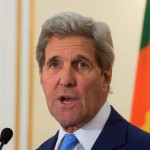
John Kerry
Mangala, thank you very, very much. Thank you for a wonderful introduction, notwithstanding that you reminded me that I disappointed you in 2004. (Laughter.) I disappointed myself and a few other people.
I am really happy to be here (inaudible) and I’m very happy to welcome all of you here. No, you are welcoming me – it’s a mutual welcome, admiration, effort. And I can’t thank Mangala and Sri Lanka enough for the very generous welcome that you gave me this morning when I first came here. I came over to that historic building that is now the foreign ministry. Thank you for that, my friend.
I also want to thank you for your remarkable efforts – yours and the president’s and prime minister’s – on behalf of the people of Sri Lanka. And I thank you for something else. A week ago I was in northern Canada, just below the Arctic Circle, not far from the Arctic Ocean, where I was assuming the chairmanship of the Arctic Council. And I want you to know it is a welcome change to enjoy the warm weather here. (Laughter.) I didn’t see a lot of igloos around, happily.
I also want to say thank you to all of you who have come here – students, educators, civil society activists, religious leaders, and to everyone from the government, the diplomatic community, and the private sector who has committed time to be here to share some thoughts this afternoon.
It is fitting that we gather today under the auspices of the Lakshman Kadirgamar Institute. Lakshman was, to put it simply, a brave man and a good man. He rejected recrimination in favor of reconciliation. He knew that the future demanded that his country move beyond the more difficult chapters of its past. And he devoted his last years to healing Sri Lanka and to leading it to its rightful place within the community of nations. He said wisely, “We have to live in Sri Lanka as Sri Lankans, tolerating all races and religions.”
So many of you here are the fathers and mothers of this vision. But as any parent will tell you, your obligations don’t end with a child’s birth; they’re just beginning. Sri Lanka’s newfound civil peace has to be nurtured; it must be allowed to grow and become stronger until it is, in fact, fully mature.
If Lakshman Kadirgamar was here and he had lived to see this new era, I know he would be inspired by the people of this country – Sinhalese and Tamil, Buddhist, Hindu, Christian, and Muslim. He would see the possibilities of a Sri Lanka reconciled, democratic, and prosperous, with a united and entrepreneurial people dedicated to making their country a shining jewel of the Indian Ocean and of the broader Indo-Pacific. The United States, I am here to tell you, believes in that vision. We believe in the potential of Sri Lanka, the potential of Sri Lanka’s people – and I mean all of its people. And I can assure you that the United States, that America will stand with you by your side as you build a stronger democracy and a future that is marked by peace and prosperity after so many years of suffering and hardship.
Now, I don’t have to tell you that history. You know it; you’ve lived it. You’ve experienced it for 30 years. Terrorism, sectarian violence, suffering, death, anger, disappearances, moments of hope followed by more loss, more hate, and more fear.
Having gone to war myself, as Mangala mentioned, not very far from here, I know the tragic truth that in peacetime, children bury their parents, but in wartime, parents bury their children. Sri Lanka has known too many generations of parents forced to bury children.
Let me be very clear about this: It is sometimes necessary to go to war, despite the pain it brings. For all of my country’s disagreements with the previous government in Sri Lanka over how it fought the LTTE, we clearly understood the necessity of ridding this country of a murderous terrorist group and the fear that it sowed.
I believe that you learned in the final, bloody days of that struggle what my country discovered to our own anguish during our civil war: There were no true victors – only victims. You saw, I trust, that it is obvious the value of ending wars in a way that builds a foundation for the peace to follow.
And I know you recognize today that the true peace is more than the absence of war. True and lasting peace, especially after a civil conflict, requires policies that foster reconciliation, not resentment. It demands that all citizens of the nation be treated with equal respect and equal rights, and that no one be made to feel excluded or subjugated. It calls for a military that projects its power outward to protect its people, not inward to police them.
It necessitates, as America’s great president Abraham Lincoln said, binding up the nation’s wounds, with malice towards none and with charity towards all.
Today, there are young people in this country who are experiencing peace for the first time in their lives. We need to hope, we need to make certain that they will know anything – that they will never know anything except for peace.
And that isn’t easy – recovering from conflict, believe me, never is easy. Under President Sirisena’s leadership, Sri Lanka’s traditions of critical debate, free press, and independent civil society are returning. The armed forces have started to give back land to people in the north. Your citizens have been asked to mourn all the dead – not just those from one part of the country or one ethnicity or one faith. Incidents of violence have decreased.
The government has stood up against hate speech and created a presidential task force on reconciliation led by former President Kumaratunga. And just this week, the parliament passed and the president championed, as Mangala said, a constitutional amendment that actually limits the powers of his office. Promise made; promise kept.
Now, the problems of Sri Lanka are clearly going to be solved by Sri Lankans. That’s the way it ought to be, but it’s also the only way it’s going to work. And you wouldn’t have it any other way.
But if – but we also know that, in today’s world, everyone and everything is connected. And when we are connected unlike any time in history – everybody’s walking around, even in places where they’re poor, with a smartphone and a cellphone; they’re in touch, they’re in touch with the world. So if there are steps the United States can take to help, we will do so. I know you have your own plan and your own notions about what is necessary, and by no means whatsoever do we intend to try to usurp that or evade that or dismiss that. That would be inappropriate and unwise at the same time. But we do have some suggestions, as friends. And let’s offer four possible areas for cooperation.
First – reconciliation. The majority of you voted for a government that is committed to the difficult task of literally healing the wounds of war. But that’s a difficult job with many components.
Years ago, I want you to know that when I was a member of the United States Senate – in the early years in the ‘90s, Mangala– I was put in charge of an investigation to try to determine the fate of American soldiers, sailors, and aviators who were still missing from the Vietnam War during the 1960s and the 1970s. The families of those in America whose loved ones had been lost were desperately trying to get answers from the government and demanding answers, and they had every right to do so. And we knew that it was impossible for us to try to move forward if we didn’t try to provide those answers. So we did everything possible that there was to try to find out what happened to their loved ones. I traveled to Vietnam something like 17 or 20 times in the span of two years, working with the Vietnamese to let us into their history houses, to their museums, to their documents – even to interview with the generals that we had fought against to see if we could provide those answers.
So we experienced the same emotions and the same search for answers that are present in your country today. And that is why it is so critical for your government to work with the ICRC and the UN in order to investigate missing person cases and try wherever you can – I can’t guarantee it; nobody can that you’ll find the answer for sure – but try to find wherever the truth may lead. No matter how painful that truth is. It’s the right and the humane thing to do – and it is, believe it or not, an essential part of the healing process.
Now, reconciliation obviously doesn’t happen all at once; it requires time and concrete actions. And those have to replace the suspicion with mutual trust and mutual fears have to be replaced with mutual confidence. I want you to know that the United States stands ready to be a partner with you in that effort.
We’ll do all we can to support the government as it makes progress in such areas as returning land, limiting the role of the military in civilian life, and trying to provide the answers on disappeared people. None of us wants to live in a country where the military is stopping its own citizens at checkpoints. And Sri Lanka’s military has so much more to contribute in defending this country, protecting vital sea lanes, and taking part in UN peacekeeping missions all over the world. And as your armed forces make that transition, we’re going to be very eager to work with you and to work with them and to help.
That said, the job of bringing Sri Lankans together also cannot be done by the government alone. So it matters what you say, it matters what people say, and that they have the right to say it. It matters what civil society – that many of you here represent – what you have to say. It matters what religious groups are saying and what they’re able to accomplish, and that they have the freedom to be able to move to do so. And it matters what communities are able to do in order to fix the kind of social problems that impact everyone – from promoting health care and a clean environment to countering domestic violence and drug use – and that the central government trusts people to take the lead.
Now in all this – some may think this goes without saying, but in too many parts of the world it doesn’t – the women of Sri Lanka are playing a critical role, and must. They are helping the needy and the displaced. They’re encouraging people to build secure and prosperous neighborhoods. They are supporting ex-combatants and survivors of sexual and gender-based violence, and they’re providing counseling and other social services. And these efforts are absolutely vital and we should all support them.
But we also have to do more than that. Here, as in every country, it’s crystal clear that for any society to thrive, women have to be in full control – they have to be full participants in the economics and in the political life. There is no excuse in the 21st century for discrimination or violence against women. Not now, and not ever.
Now, that brings me to the second area of possible cooperation on justice and accountability. Restoring your country’s judiciary is a long-term undertaking that requires high standards for judicial independence, fairness, and due process under the law. Those reforms are often difficult to achieve anyway – we’re still working on some things in our system, believe me; you can see some of it on television – not easy, but it is absolutely essential to be open and honest about trying to do it. Every citizen has a right to seek justice, and every citizen has a right to expect justice for victims of war crimes or crimes against humanity. They’re painful issues; I know that. But if you try to compel people to simply forget the past and try to wipe it away, believe me: They will be more likely, not less, to cling to it. And if you tell them to forego justice under the law, they will be more likely to seek it outside of the law. It will be harder, not easier, to move forward as one country at peace.
And that is why we hope your government will continue to cooperate with the United Nations as it explores the best way to mount a credible domestic investigation into allegations of human rights abuses – an investigation that meets international standards and at the same time, and most importantly, is legitimate in your eyes, in the eyes of the people here. The United States is prepared to furnish whatever legal, whatever technical assistance, whatever help we can to support Sri Lanka as it moves down this path.
A third area where we can work together is the advancement of human rights, here and around the world. The new government that you’ve elected is laser focused on establishing a strong reputation for your country on human rights. And the United States could not be more supportive of that goal. Until just recently, our diplomats routinely clashed with yours on these issues at the Human Rights Council in Geneva and the UN in New York. Now, with the new government, with the turning of this critical page, we have an opportunity to work together. But we also continue to urge your government to release remaining political prisoners, and we would be pleased to assist in those efforts by sending a team of legal experts to advise on assessment and release, which is a critical component of the documents that have to be made in that.
And I say this fully mindful of the fact – believe me – no nation, including the United States, has a perfect record on human rights. We all have to do our best in order to improve. And I hope that the momentum that has been created in Sri Lanka will continue to build, and I’m confident that with the government you have and their commitments reiterated to me today, I have no doubt that you will.
Now, a final challenge on which our two governments may be able to work together is the strengthening of democratic institutions. Here, you have a very strong foundation on which to build. Your former president reminded me that they had lunch, that you had the first – the longest serving supreme court in all of Asia, and that you have one of the oldest parliaments. You have this extraordinary foundation on which to build. We simply offer our support to help you in any way that we can on this effort of capacity building and the challenge of restoring the tradition that you have always had with respect to the fullness of your democracy. We want to help support you in the upcoming electoral processes. Timely elections will be yet another sign of the government following through on its commitments.
Now, the people of Sri Lanka deserve great credit for the recent elections. And I want to congratulate all of you. They’re quite remarkable. You turned out in huge numbers to exercise your rights. Every vote was a victory for your country. And you insisted on historic reforms, including a constitutional amendment that was just restoring the independence of the electoral commission. But hard work remains, my friends, including devolving power to the provinces. The United States stands ready to provide technical assistance to make it easier to implement these measures and to strengthen such critical institutions as the ministries and parliament. We’re also ready to help with asset recovery and the enforcement of anti-corruption rules. Our investigators are prepared to work with your investigators. Our prosecutors are prepared to work with your prosecutors. And we commit that any stolen assets in the United States will be returned to their rightful owners.
We’ve seen in recent decades that free countries can learn from one another, and that, to prosper, they have to be prepared to help one another. And that is why I’m pleased to announce that our governments will launch a partnership dialogue to intensify our cooperation across the board. President Obama has nominated a new ambassador, and as a symbol of our renewed commitment to this relationship, I am happy to announce that we are going to build a new embassy compound. And our partnership dialogue and expanded bilateral assistance will help consolidate Sri Lanka’s very impressive gains. We also want to do this in a spirit of friendship and mutual respect. We’re not doing this as part of any global countering or whatever – make your choices. That’s your right as independent people. But we appreciate and respect and admire the steps that have been taken by you to give yourself a government that wants to restore that government. And in any way that we can help, we stand ready to do so.
So to sum up, Sri Lanka is at a pivotal point. Peace has come, but true reconciliation will take time. Your institutions of governance are regaining strength, but further progress will have to be made. The United States will help when and where we can. And no part of this transition, obviously, will be easy, but if Sri Lanka keeps moving forward, I have every confidence it will take its rightful place of respect and of influence on the world stage.
Sri Lankans should take enormous pride – I’m sure you do – in what has been happening within your borders. But every nation also has to look beyond its borders as well.
For Sri Lankans, that’s nothing new. Your country sits at the crossroads of Africa, South Asia, and East Asia. And for centuries, it’s served as a gateway for merchant ships. The Indian Ocean is the world’s most important commercial highway. Today, 40 percent of all seaborne oil passes through the Strait of Hormuz and half of the world’s merchant fleet capacity sails through the Straits of Malacca. And with its strategic location near deep-water ports in India and Myanmar, Sri Lanka could serve as the fulcrum of a modern and dynamic Indo-Pacific region.
The questions now are: How do we get there and what role can the United States play in that journey? Well, let me answer that question by saying that we see our role partly as a leader, because we have a strong economy and an ability to be able to project, but also we see our role as a convener, and most importantly, as a partner.
The United States is already providing leadership on maritime security in the India Ocean in association with close friends and allies across the region, including India, Australia, Indonesia, and Japan. And that requires, in part, a focus on counter-piracy and counter-trafficking operations. It requires investments in humanitarian assistance and disaster relief, so that the next big storm doesn’t inflict catastrophic damage on coastal communities. The United States and Sri Lanka are also working together to oppose the use of intimidation or force to assert a territorial or maritime claim by anyone. And we reject any suggestion that freedom of navigation and overflight and other lawful uses of the sea and airspace are somehow privileges granted by big states to small ones. They’re not privileges; they’re rights. And these principles bind all nations equally. And the recent decision by India, Myanmar, and Bangladesh to submit to binding arbitration – that’s an example of how maritime claims can be resolved peacefully and through good-faith negotiations.
Now, I’ve said convene also – is a convener. The United States is also a convener when it comes to promoting economic integration. South Asia is one of the globe’s least economically integrated regions. Trade among its countries amounts to some 5 percent of total trade and the cost of doing business across borders due to non-tariff barriers, import duties, and bottlenecks at border crossings is a huge impediment to growth.
That is why the United States is promoting the Indo-Pacific Economic Corridor to connect South Asia to Southeast Asia and to spur sustainable development in both regions. IPEC will strengthen energy, transit, trade, and people-to-people ties – on land and sea. And the challenge is: What’s the pace going to be of this integration? If commerce across South Asia is going to become the economic driver that it ought to be, governments have to act with urgency, not settle for half-measures or wait for the next country to go first. And we look forward to working with the Sri Lankan Government as it increases trade and investment with its neighbors in the Indian Ocean and beyond.
So the United States I’ve described as a leader and convener. Most importantly, though, I want to talk about being a partner. We’re a partner in something like disaster relief, climate change, clean energy. Here in Sri Lanka, you lived through the devastating impact of the 2004 tsunami. I’ll never forget hearing the news. The images are absolutely extraordinary, gut-wrenching –entire towns obliterated; raging waters sweeping away people’s homes; hundreds of thousands killed and many more separated from families.
And after the devastation, the American people moved quickly and generously to provide relief. And I’m proud that the United States Marines were among the first responders in the recovery efforts. And USAID alone provided about $ 135 million of assistance, with many millions more coming from the American people’s personal donations.
The earthquake that caused the tsunami was unprecedented in its destructive impact. And as searing as images from Kathmandu this week remind us, the nations of this region have to find common cause in enhancing the preparedness for natural disasters. But we also know that because of climate change, we’re actually going to be facing more frequent and intense disasters across the board. I’m not drawing that out of thin air, and I hate to be the bearer of that kind of a warning, but it’s science that’s telling us – the IPCC of the United Nations, the world’s scientists. And we’re seeing the changes already in so many different places, including the Arctic, that I visited the other day. So the United States stands ready to help respond and prevent climate change by leading the world towards a global agreement at the end of this year in Paris.
I can’t tell whether one storm – nobody can – or another storm specifically was caused by climate change, but I can tell you that scientists are telling us unequivocally that there will be more storms of greater intensity unless we stop and reverse course in what we are doing to send greenhouse gases into the atmosphere.
Now, some people might shrug their shoulders and just say, “Well, there’s nothing that I can do about it.” That’s not true. There’s something everybody can do about it. In fact, all of us know exactly what we have to do. The solution to climate change is a transformed energy policy. Just as climate change presents the United States, Sri Lanka, and the region with a common threat, my friends, the need to develop secure and sustainable energy sources presents us with a remarkable shared opportunity – the greatest market in the history of humankind. It’s an opportunity to make the right choices about conservation, about wind power, or solar power, hydro – which you have, significantly – about fuel and utility standards, about efficiency standards, about building codes, about transportation. And we can – and with all those things – reduce the emission of greenhouse gases and save ourselves, save the planet, literally, from a catastrophe that would be the unrestrained effects of climate change.
Good energy solutions are good climate solutions. And the market represents a multi-trillion dollar opportunity, with 4 to 5 billion users around the world today. Just so you have a little comparison on that, the market of the 1990s that drove our economy to the greatest wealth creation since the early 1900s was a $ 1 trillion market, not multitrillion. And it had one billion users. And that was the technology, communications market. The energy market is 6, 7 trillion now and rising – maybe 9 by the mid part of the century. By 2040, investment in the energy sector is expected to reach nearly $ 20 trillion. That’s a lot of money, my friends – that’s a lot of jobs. So we want to see clean, accessible energy be the biggest slice of the economic pie.
Now, of course, Sri Lanka is much more of a marketplace for clean energy. It is much more than simply a market to attract clean energy, and you know that, and I know that. It’s a cultural model; it’s a huge economic mosaic. It could well become, as you march down this road with the effectiveness you have been these days, a model for democracy and the restoration of democracy. It could show unity in remarkable ways to the region. We see even now, regrettably, that there are signs – troubling signs that democracy is under threat in Maldives, where former President Nasheed has been imprisoned without due process. And that is an injustice that must be addressed soon. But Sri Lanka’s story carries the promise that people can hold their government accountable, use peaceful dissent, use the power of the ballot box and change the course of history. And we can already see here the power of that promise.
We see it in the hard work of a Sinhalese mother who struggles to give her child a good education. We see it in the dignity that comes when a young Tamil man secures a job in which he can take pride. We see it in the common desire of all Sri Lankans to live in a safe neighborhood and a secure nation. We see it in the demand that leaders protect the rights of people and be responsive to the basic needs and aspirations. Those are the values that connect all of us across every boundary, no matter our history, no matter our background, no matter our beliefs and our creed. That’s who we are. Now, I want to leave you with just one story of that kind of belief today.
Karthika is from a Tamil Hindu family. When she was 14, the Tigers kidnapped her and sent her north to Jaffna. She was forced to carry a gun and move through the jungle. She was given barely enough food to survive. And in a firefight one day, bullets and shrapnel blinded her in one eye. For 11 years, her family had no idea whether she was alive or dead.
Eventually, Karthika escaped that hell by fleeing through areas of heavy fighting. She returned home, but in many ways, her struggle was only just beginning. She had limited education, limited skills, having spent half her life surrounded by war. She had few friends, and even fewer prospects to find a job or even to start a life.
After several false starts, Karthika found a USAID program in the Eastern Province that offered her a way out. She trained for months and learned the skills she needed to get her a job in a new garment factory. She started earning an income. And she made an effort to befriend women from the Sinhalese community, something that would have been unimaginable for her just a few short years ago. Asked why she was able to find hope when others didn’t, Karthika said very simply, “Now, it has changed.”
My friends, everywhere there is an injustice, there are men and women who are ready to be the Karthikas of their moment. Men and women who survive a war that wrecks families, and then build their own. Men and women who see what the worst of what people can do, and then dedicate their lives to finding the best in others. You have all borne the costs of war. It’s now time for you to experience and hold onto the benefits of peace. “Now, it has changed” is a claim that each and every one of you can make together. And I am certain that you will make it a proud claim – a badge of merit and honor and success that will be heard and seen by your neighbors and friends all across the globe.
So thank you once again for welcoming me here. It’s an honor for me to be here at this point in your history. And I can tell you that we will not walk away from our pledge to work with you, to go together on this road and on this journey. Good luck to all. Godspeed on the road ahead. Thank you.
*Remarks by John Kerry, Secretary of State – Colombo, Sri Lanka -May 2, 2015
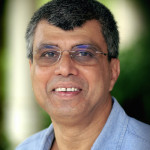
 In this regard, it would be naive to promote tourism and feel that single male and female visitors devote their dollars on merely experiencing beaches, landscapes and archaeological artefacts. The reality is that soon after dark they seek out physical excitement and fulfilment in bars, pubs and clubs, such as they would normally do at residence.
In this regard, it would be naive to promote tourism and feel that single male and female visitors devote their dollars on merely experiencing beaches, landscapes and archaeological artefacts. The reality is that soon after dark they seek out physical excitement and fulfilment in bars, pubs and clubs, such as they would normally do at residence.
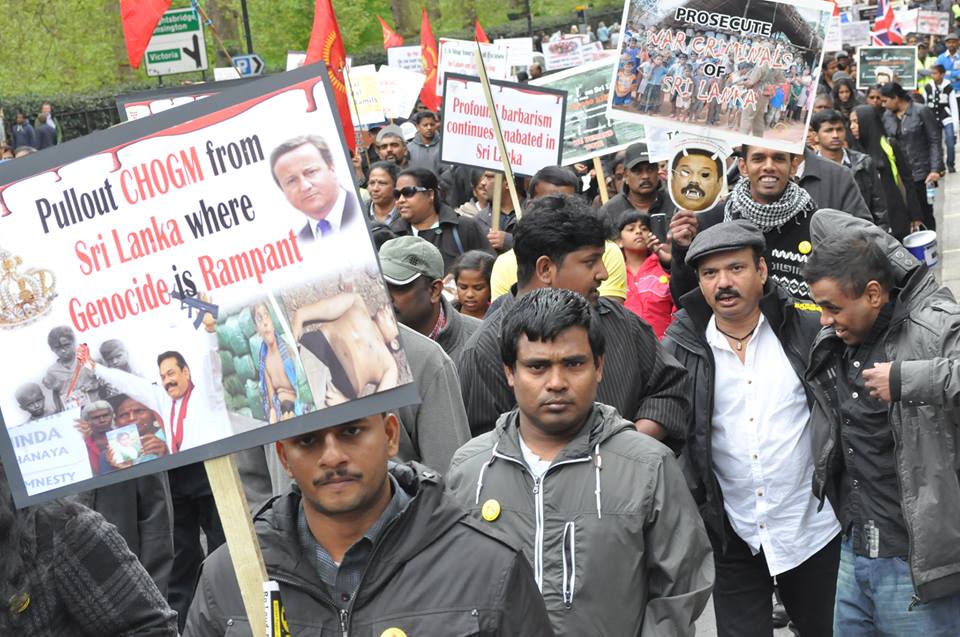 Furthermore it need to be acknowledged that most obstacles when it comes to Sri Lankans living together peacefully soon after Might 2009 have been internal i.e. the result of the strength of
Furthermore it need to be acknowledged that most obstacles when it comes to Sri Lankans living together peacefully soon after Might 2009 have been internal i.e. the result of the strength of 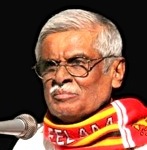
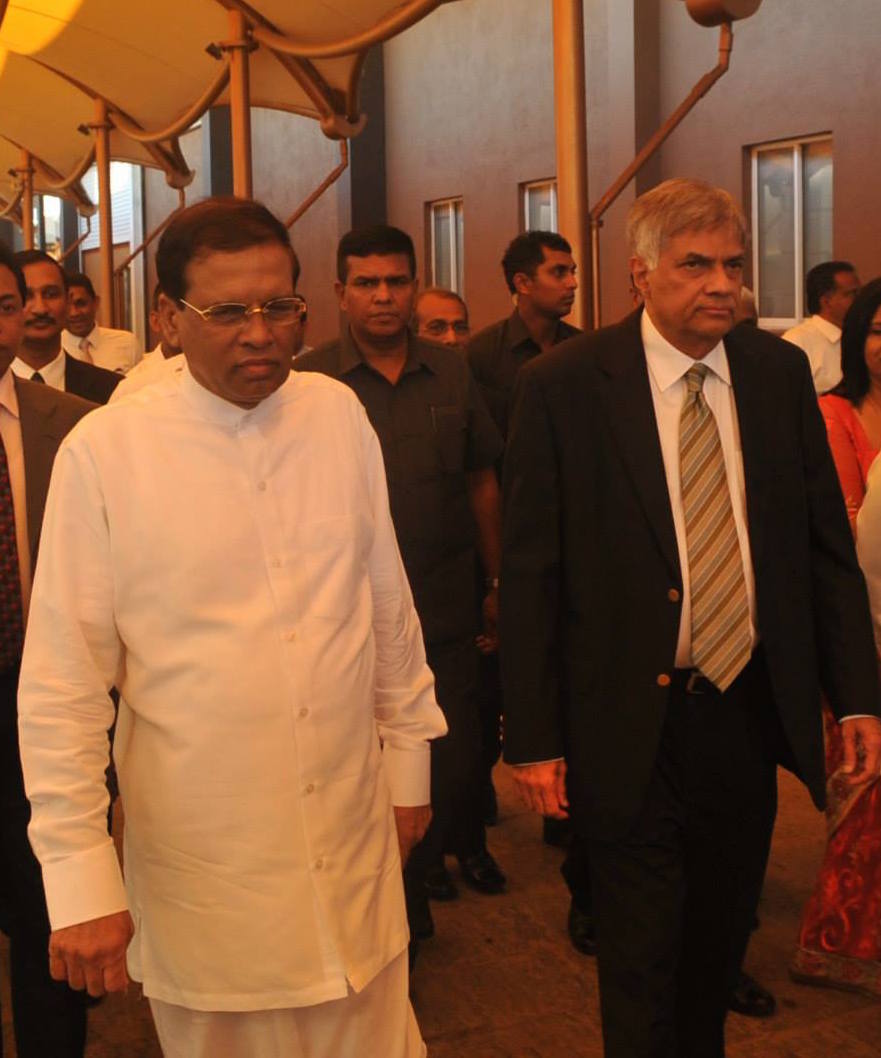 Secondly, some investigations have been initiated against the members of the Rajapaksa dynasty for their involvements in bribery, tamashas, frolics, misuse and abuse of state machinery, sexual trysts in houses and airlines. The media is exposing the disgusting details of numerous disgraceful episodes, but there is inexplicable slowness and reluctance to bring them to face the crimes and culpability upholding the rule of law, although
Secondly, some investigations have been initiated against the members of the Rajapaksa dynasty for their involvements in bribery, tamashas, frolics, misuse and abuse of state machinery, sexual trysts in houses and airlines. The media is exposing the disgusting details of numerous disgraceful episodes, but there is inexplicable slowness and reluctance to bring them to face the crimes and culpability upholding the rule of law, although 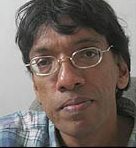
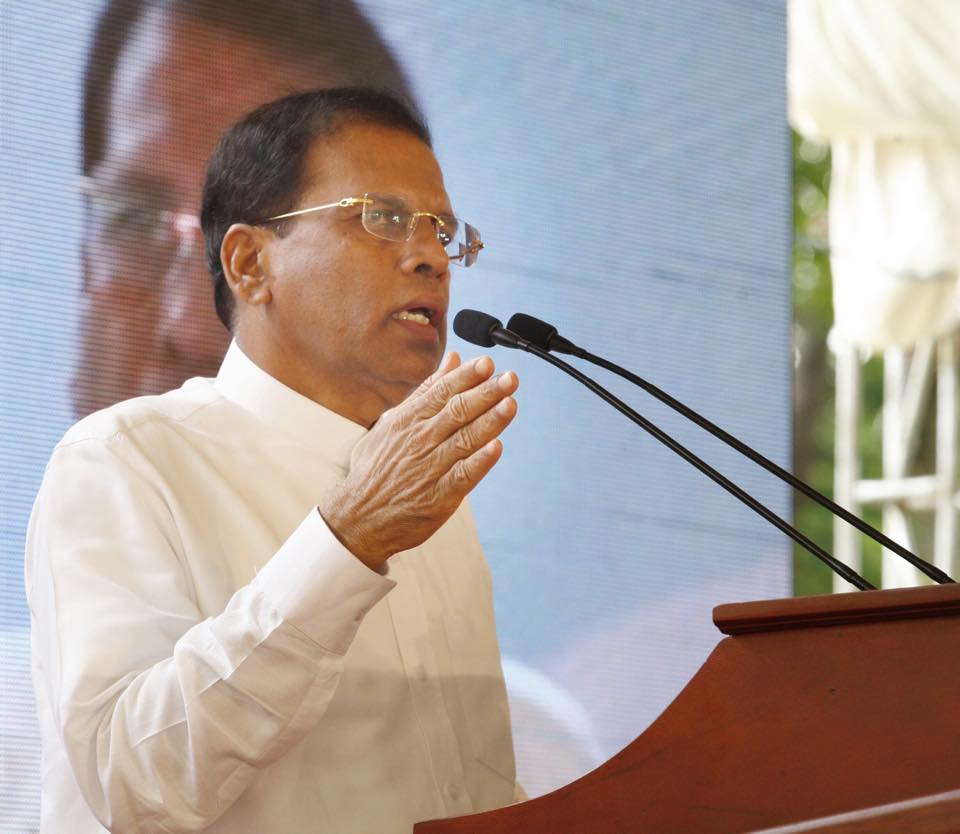 The conference attracted participation from different parts of the world, such as India, Myanmar, Maldives, Norway and the United States. From within Sri Lanka there was participation from numerous universities, most notably Jaffna University which had a contingent of students and lecturers. At the conclusion of the conference, these who had come from outdoors, and been guests of the Buddhist and Pali University were full of praise for the organisers of the conference. The participants from Jaffna have been also moved to defend the organisers who had come in for criticism from outside. There was damaging commentary in a section of the media that the conference organisers had accepted monetary help from the US embassy for the conference. There was also criticism that the Buddhist flag was not put up at the conference venue. The conference showed that when Buddhist monks are offered the space and support, they will act in a universal manner as befits the leadership of any religion.
The conference attracted participation from different parts of the world, such as India, Myanmar, Maldives, Norway and the United States. From within Sri Lanka there was participation from numerous universities, most notably Jaffna University which had a contingent of students and lecturers. At the conclusion of the conference, these who had come from outdoors, and been guests of the Buddhist and Pali University were full of praise for the organisers of the conference. The participants from Jaffna have been also moved to defend the organisers who had come in for criticism from outside. There was damaging commentary in a section of the media that the conference organisers had accepted monetary help from the US embassy for the conference. There was also criticism that the Buddhist flag was not put up at the conference venue. The conference showed that when Buddhist monks are offered the space and support, they will act in a universal manner as befits the leadership of any religion.
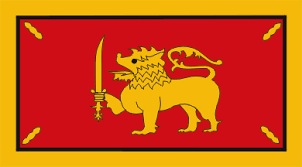
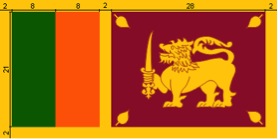
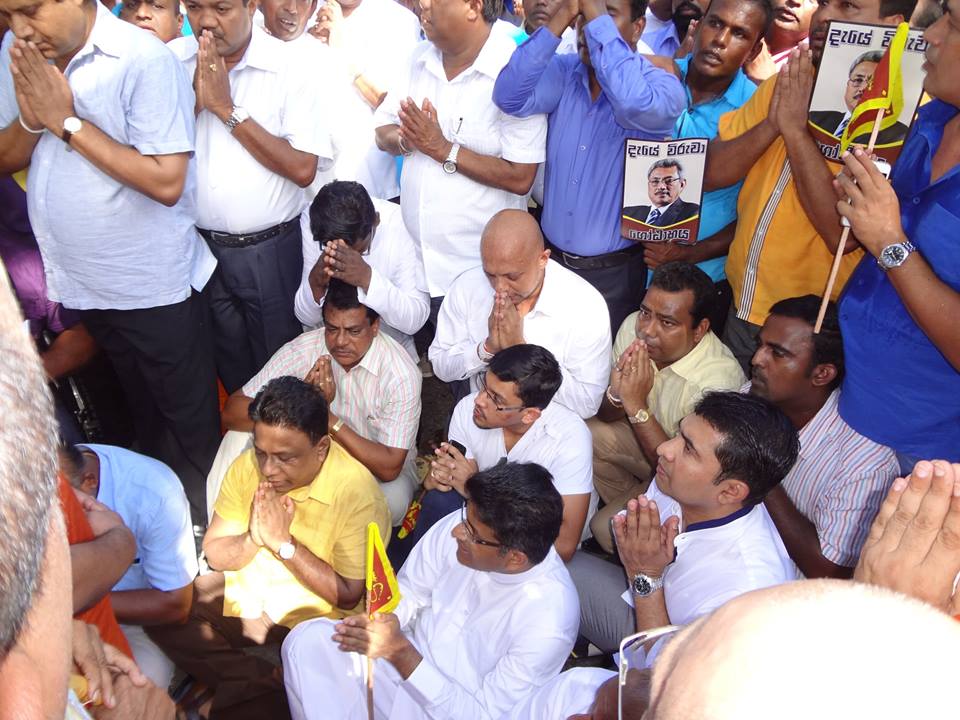 Various persons have already produced police complaints and instant action must be taken by the Police to make sure that this menace is nipped in the bud. Most folks have a tendency to brush off these forms of racism as an insignificant nuisance, but the country witnessed a comparable campaign of blatant racism and hate that was spearheaded by the Bodu Bala Sena (BBS),
Various persons have already produced police complaints and instant action must be taken by the Police to make sure that this menace is nipped in the bud. Most folks have a tendency to brush off these forms of racism as an insignificant nuisance, but the country witnessed a comparable campaign of blatant racism and hate that was spearheaded by the Bodu Bala Sena (BBS), 